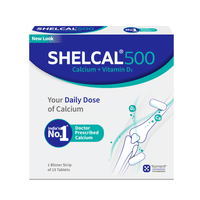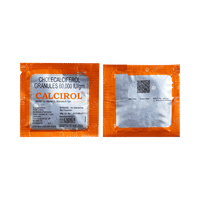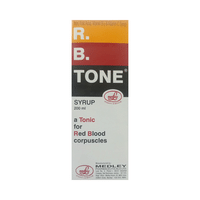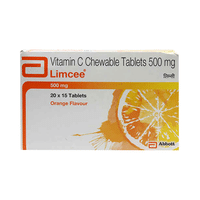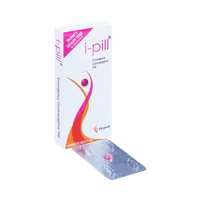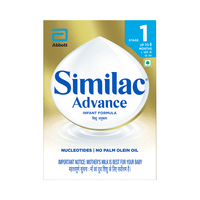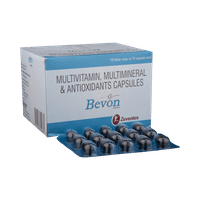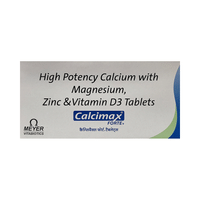Capiibine Tablet

Rs.3275for 1 strip(s) (30 tablets each)
இதர வேரியன்ட்ஸ் களில் உள்ளது
Capiibine Tablet க்கான உணவு இடைவினை
Capiibine Tablet க்கான மது இடைவினை
Capiibine Tablet க்கான கர்ப்பகாலம் இடைவினை
Capiibine Tablet க்கான பால் புகட்டுதல் இடைவினை
உணவு
மது
கர்ப்பகாலம்
பால் புகட்டுதல்
Capiibine Tablet உணவுடன் உட்கொள்வது மிகச்சிறந்தது.
மதுவுடனான எதிர்வினை தெரியவில்லை. உங்கள் மருத்துவரை கலந்தாலோசிக்கவும். ஏதுமில்லை
CONSULT YOUR DOCTOR
Capiibine Tablet கர்ப்பகாலத்தின்போது பயன்படுத்துவதற்கு உகந்தது அல்ல.
மனித கருவிற்கு சாத்தியமான ஆபத்துகள் வரக்கூடும். இதன் பலன்களை ஆபத்தை உணர்ந்த பிறகு விருப்பம் இருந்தால் கர்ப்ப காலத்தின்போது பயன்படுத்தப்படலாம், உதாரணமாக உயிர்கொல்லி நிலைகள். உங்கள் மருத்துவரை கலந்தாலோசிக்கவும்.
மனித கருவிற்கு சாத்தியமான ஆபத்துகள் வரக்கூடும். இதன் பலன்களை ஆபத்தை உணர்ந்த பிறகு விருப்பம் இருந்தால் கர்ப்ப காலத்தின்போது பயன்படுத்தப்படலாம், உதாரணமாக உயிர்கொல்லி நிலைகள். உங்கள் மருத்துவரை கலந்தாலோசிக்கவும்.
CONSULT YOUR DOCTOR
Capiibine Tablet தாய் பாலூட்டும் போது பாதுகாப்பற்றது.
மருந்து குழந்தைக்கு அல்லது நிலைமையினால் அவதியுறும் தாய்க்கு நச்சுத்தன்மையுள்ளதாக இருக்கலாம் என்பால்ல் தாய் பாலூட்டுவது பரிந்துரைக்கவில்லை.
UNSAFE
Capiibine 500mg Tablet க்கான உப்பு தகவல்
Capecitabine(500mg)
Capiibine tablet இன் பயன்கள்
பெருங்குடல் மற்றும் மலக்குடல் புற்றுநோய், வயிற்றுப் புற்றுநோய் மற்றும் மார்கப்புற்றுநோய் சிகிச்சைக்காக Capiibine Tablet பயன்படுத்தப்படும்
Capiibine tablet இன் பொதுவான பக்க விளைவுகள்
குமட்டல், வாந்தி, பலவீனம், வயிற்றில் வலி, பசியின்மை, களைப்பு, வயிற்றுப்போக்கு, இரத்தத்தில் பிலிரூபின் அதிகரித்தல்
Capiibine Tablet க்கான மாற்றுகள்
47 மாற்றுகள்
47 மாற்றுகள்
Sorted By
 Rs. 1262.08pay 12% more per Tablet
Rs. 1262.08pay 12% more per Tablet Rs. 895.39save 40% more per Tablet
Rs. 895.39save 40% more per Tablet Rs. 1262.35save 2% more per Tablet
Rs. 1262.35save 2% more per Tablet Rs. 1262.30pay 6% more per Tablet
Rs. 1262.30pay 6% more per Tablet Rs. 1125.94save 2% more per Tablet
Rs. 1125.94save 2% more per Tablet
Capiibine 500mg Tablet க்கான அடிக்கடி கேட்கப்படும் கேள்விகள்
Capecitabine
Q. What are the side effects of Capiibine Tablet?
The side effects of Capiibine Tablet include stomach pain or upset stomach, constipation, loss of appetite, and change in ability to taste food. It may also cause increased thirst, unusual tiredness or weakness, dizziness, headache, hair loss, skin rash, back, join, or muscle pain. You may also experience red, swollen, itchy, or teary eyes and trouble falling asleep or staying asleep. Inform your doctor if any of these symptoms are severe and persist for long.
Q. What are the serious side effects of Capiibine Tablet?
The use of Capiibine Tablet may cause various serious side effects such as diarrhea, nausea, vomiting, sores in the mouth, swelling, pain, redness, or peeling of skin on the palms and soles of the feet. One may also experience fever, chills, sore throat, or other signs of an infection, swelling of the hands, feet, ankles, or lower legs, chest pain or pressure, fast heartbeat, dark urine and yellowing of the skin or eyes. Inform your doctor immediately if you experience any such symptoms.
Q. Does Capiibine Tablet make you tired?
Yes, Capiibine Tablet may make you tired and you may also feel weak, as these are the most common side effects of the medicine. Hence, it is possible that use of Capiibine Tablet may affect your ability to drive or operate machinery.













